ISEK Elections 2024-2026
Members of ISEK in full standing, are entitled to participate in the election of members to serve on the Council for the 2024-2026 term. Members in good standing will have received a link directly to the email on their membership account for the electronic vote. Only members who are fully paid for the current year (2024 membership expiry) are eligible to vote in the election. Please review the information below and vote before the election closing date of April 1, 2024.
If you have not received the voting link, please contact the Secretariat to confirm your membership.
Council Nominations
There are seven positions available for the 2024 – 2026 term. Members may cast up to seven votes to elect the next Council Members. The seven people with the highest cumulative votes will be voted in for the 2024 – 2026 term.
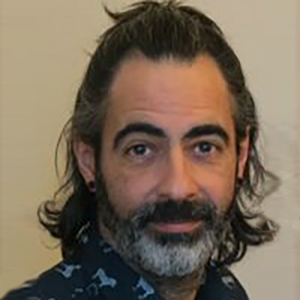
Laurent Bouyer, PhD
Dr. Bouyer is a Full Professor in the School of Rehabilitation Sciences at Laval University, the Director of the Neuroscience Research Center and a Researcher at the Center for Interdisciplinary Research in Rehabilitation and Social Integration (CIRRIS). His research program focuses on motor control and motor learning. Most of his research projects are carried out in interdisciplinary teams that combine health sciences and engineering, covering many facets of rehabilitation research. His research interests include understanding the neural circuitry underlying human gait control, remote EMG and movement sensing / telemetry in real-world environments, improving clinical tests using wearable EMG sensors, characterizing early indicators of muscle fatigue during complex movements, and developing new robotic technologies and EMG-based software for rehabilitation.
Statement:
Over the last 4 years, I have been involved with ISEK leadership at different levels. First, I was the co-president of the 2022 ISEK Congress in Quebec City. Then, I served as ISEK treasurer from 2022 to 2024. Over these years, I saw ISEK expand and I really enjoyed working with the other council members in helping that happen. I consider that we are in exciting times for the Society and would like to continue participating as a council member to put together initiatives that can help our members exchange and connect better from all areas around the world.
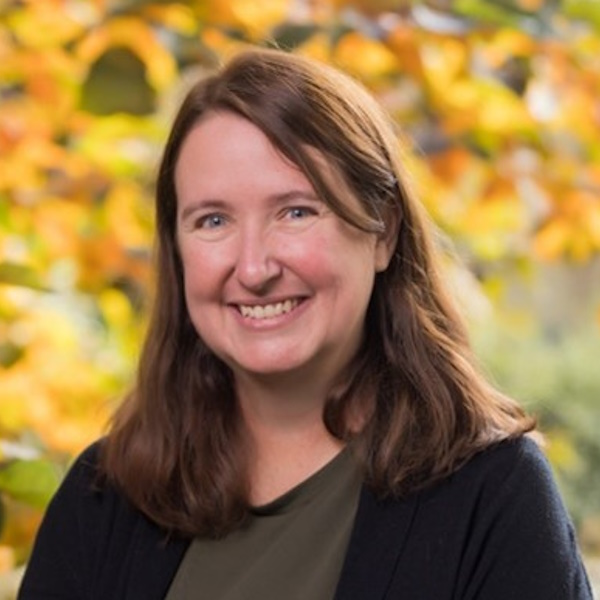
Jane E Butler, PhD
Professor Jane Butler is a Senior Principal Research Scientist and NHMRC Research Fellow at Neuroscience Research Australia in Sydney, Australia. She received a Ph.D. in the neural control of breathing from the University of New South Wales, Australia. As a post-doctoral researcher, she worked at the Miami Project to Cure Paralysis, University of Miami. Jane currently leads a team of researchers examining fundamental and translational outcomes in the neural control of breathing with the aim to identify and improve respiratory motor impairment in ageing, and respiratory or neurological disorders, such as spinal cord injury. She has more than 180 peer-reviewed publications. In 2019, she co-established and became co-director of the Spinal Cord Injury Research Centre in Sydney, a centre focused on the development and understanding of novel clinical methods to improve both respiratory and limb muscle function after spinal cord injury.
Statement:
I am a Senior Principal Research Scientist at Neuroscience Research Australia and Conjoint Professor at the University of New South Wales, Sydney, Australia.
I have worked in the field of motor control for 30 years, mostly in the neural control of human breathing, motor units, fatigue, and recovery of function after spinal cord injury, including clinical trials. I am also an Associate Editor for the Journal of Neurophysiology. As a council member I would be keen to get more involved with the ISEK community and support the aims of ISEK as a society, including supporting early career researchers through mentorship and developing new programs for members who are restricted from attending through personal circumstances. I am willing to put in time and effort to work together with other ISEK council members to achieve these aims. Each time I have attended ISEK meetings, I have been inspired by the breadth and depth of the research presented and have enjoyed catching up with the latest research in the field with fantastic representation from all around the world. I am looking forward to attending this year in Nagoya, where I am honoured to be delivering one of the plenary lectures. I hope you will consider me as a nominee for the role of Council Member.
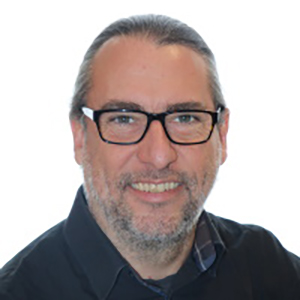
Corrado Cescon, PhD
Born in Ivrea, Italy in 1975, obtained a master degree in Electronic Engineering at LISiN, Politecnico di Torino, Italy (2000), and a PhD in Biomedical Engineering at LISiN, Politecnico di Torino, Italy (2005) under the supervision of Professor Roberto Merletti.
Fellow the Laboratory for Neuromuscolar System Engineering in Torino, Italy. (2000–2007).
Research Assistant Professor at the Center for Sensory-Motor Interaction (SMI) in the Aalborg University, Aalborg, Denmark (2007-2008) under the supervision of Professor Dario Farina.
PostDoc the Laboratory for Neuromuscolar System Engineering in Torino, Italy. (2008–2011).
Since 2012 he is a senior researcher at the Rehabilitation Research Laboratory 2rLab, SUPSI DEASS, Manno, Switzerland with Professor Marco Barbero.
His main expertise’s are the design of algorithms and the processing of biomedical signals, image processing, development of real time interfaces for biofeedback. His research focuses on muscle fatigue, high density EMG, kinematics, motion capture and force measurement.
He is author of more than 80 publications on international peer reviewed journals with an H-index of 23 according to Scopus.
Statement:
I have posters and oral presentations in each ISEK Congress since Vienna 2002. I have participated to all the congresses’ since Torino 2006 (except for Brisbane 2012). I have been serving the ISEK Council for the last 4 years. At the beginning I was part of the Diversity (DIBS) Committee, and currently I am responsible of the Communication Committee. I helped in the final draft of the ISEK Logo, supervised the ISEK website revamp, kept active the Twitter (X) page for the last two years and helped Taian Vieira in the development of the ISEK teaching repository. I feel a strong connection with the ISEK community and would like to continue giving my contribute to its growth.
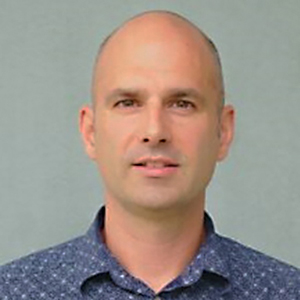
François Hug, PhD
François Hug received his PhD in human movement sciences from Aix-Marseille university (France – 2003). As Full Professor at Nantes Université (France), he led a research Lab until he moved to Université Côte d’azur (France), in 2021. He is a fellow of the Institut Universitaire de France and an honorary professor at the University of Queensland (Australia) where he spent >5 years since 2011.
Francois research focuses on the neural control of movement in health and disease. He has developed a neural framework based on the non-invasive recording of motor neurons to reveal the modular organization of movement control at the spinal motor neuron level. He has published >200 articles in peer-reviewed journals.
Francois serves on the editorial board of Journal of Electromyography and Kinesiology and Scandinavian Journal of Medicine and Science in Sport. He is an expert for the Consensus for Experimental Design in Electromyography (CEDE) project, which is an international initiative which aims to guide decision-making in recording, analysis, and interpretation of electromyographic data.
Statement:
I have been an active member of ISEK and have attended all ISEK conferences since 2006. I particularly appreciate the friendly atmosphere of the ISEK conferences, which make them an ideal place for early career researchers (ECR) to present their work and build new collaborations. Since 2022, I have served on the ISEK council and in the member services sub-committee. In this role, I have contributed to organize the series of ISEK-JEK tutorials.
My primary motivation for serving as an ISEK council member for an additional term is to contribute to the development of ISEK by promoting research in Electrophysiology and Kinesiology. The shift towards organizing online events in recent years has significantly enriched the ISEK membership experience, offering ongoing learning and networking opportunities. I am eager to contribute to expand these initiatives and to facilitate the interaction of well-established ISEK contributors with our growing ECR community.
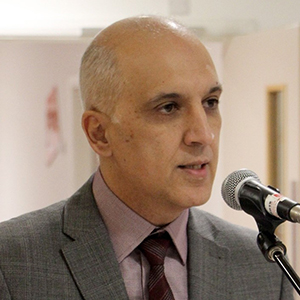
Omid Khaiyat MD, PhD
Professor Omid Khaiyat is a Professor of Musculoskeletal Physiology and Health and Dean of the School of Health and Sport Sciences at Liverpool Hope University, UK. He graduated in Medicine in 1995 (MD) and obtained PhD in Musculoskeletal Science (Sports Medicine) from the University of Liverpool in 2006. As a fully registered medical practitioner, he has developed strong clinical research collaborations, primarily specialising in upper limb function and pathologies. Prof. Khaiyat’s research aims at using EMG in combination with a diverse range of technologies to investigate muscle health and function in relation to musculoskeletal pathologies, chronic health conditions, and evidence-based rehabilitation.
He is Chair of the successful biannual Shoulder Rehabilitation Conference and a member of European Society for Shoulder and Elbow Rehabilitation (EUSSER) and a recognised research partner of the UK Sports Institute for Upper Limb Research.
Statement:
Prof. Khaiyat has used surface and fine-wire EMG for more than two decades, which has resulted in a comprehensive profile of publications with a focus on interdisciplinarity. In pursuing his wide-spread interests, he has established a biomechanics laboratory equipped with three EMG systems and related technologies including motion capture and force analysis to facilitate multidimensional assessment of human movement, with facilitated access to other speciality labs as well as physiotherapy and sport rehabilitation clinics.
Within his specialist area of research, Prof. Khaiyat has employed integrated EMG approaches to explore muscle function during the progressive stages of upper limb injury in clinical and sporting populations, from the underlying pathophysiology (e.g. The Pathophysiology of Subacromial Impingement Syndrome: A study of function, kinematics and muscular activity), implications of the kinetic chain in shoulder function (e.g. The influence of Kinetic Chain sequencing on throwing performance in overhead athletes with and without shoulder injury), and the effectiveness of rehabilitation exercises (e.g. glenohumeral and scapulothoracic musculature exercises: an EMG study).
Prof Khaiyat is also a passionate promotor of integrating EMG technology for multidimensional investigation of muscle function in chronic health conditions (i.e. heart failure, aging/sarcopenia). The key aim of nomination is to enable knowledge transfer/exchange within the wider community in promoting and supporting a multi-dimensional and integrated use of EMG to investigate muscle function in relation to basic science, clinical health conditions, musculoskeletal pathologies, and evidence-based rehabilitation.
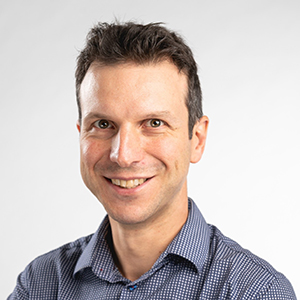
Hugo Massé-Alarie PT, PhD
Hugo Massé-Alarie (PT, PhD) is a researcher at Cirris research centre and associate Professor in physiotherapy at Université Laval in Quebec City. His research interests are related to spine sensorimotor control and back pain processing, and management of low back pain. Specifically, his research program aims to enhance the understanding of the neural control of trunk muscles, and to determine if specific neural circuits are altered in low back pain. To do so, he has developed technical expertise in trunk muscle-evoked responses using neurophysiological techniques such as transcranial magnetic stimulation and electrical vestibular stimulation combined with electromyography. Moreover, he is interested in the effectiveness of conventional (e.g. exercises) and novel (e.g. neurostimulation) non-invasive and non-pharmacological interventions in patients suffering low back pain. In 5 years as principal investigator, Dr. Massé-Alarie was funded by major funding bodies in Canada and by international societies including Canadian Institutes of Health Research, Natural Science and Engineering Research Council, Canadian Foundation for Innovation, Fonds de Recherche du Québec en Santé, Pfizer inc., the Canadian Pain Society and the International Society for the Study of Lumbar Spine totalling ~CA$2.2M in research funds. He also published 59 articles in peer review journals.
Statement:
I completed a BSc in Physiotherapy (2006-2009), an MSc (2009-2011) and a PhD degree (2011-2016 | C Schneider) at Université Laval, Canada. Thereafter, I completed a postdoctoral training at the University of Queensland in Australia (2016-2018) in Prof Paul Hodges’ team, a past ISEK president and a prominent leader in the fields of motor control and pain. I started my position at Université Laval in 2018. Dring my graduate and postdoctoral training, I developed expertise in neuroplasticity and motor control of the trunk in people with chronic low back pain. I also tested the influence non-invasive interventions on neuroplasticity and trunk motor control in this population. To answer these research questions, I use multiple neurophysiological techniques such as transcranial magnetic stimulation, electrical stimulation (vestibular and cutaneous), StartReact paradigm in combination with electromyography.
I believe that I developed an expertise that is quite unique in the neural control of trunk muscles. The use of neurophysiological techniques in trunk muscles is challenging for different reasons (absence of superficial nerve innervating the trunk muscles, lesser density of cortical neurons projecting to the trunk, etc.) requiring adaptations of conventional protocols. As a prospective council member, my aim is to actively promote research related to movement in both health and disease. I believe that my unique expertise will bring a fresh perspective on the Council. I am eager to initiate my contribution to the scientific life of ISEK, and the organization of the various events to promote the importance of studying movement and exercises.
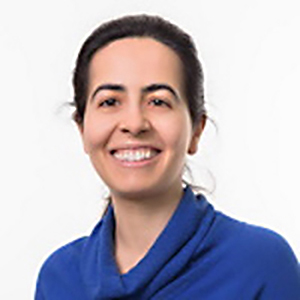
Silvia Muceli, PhD
I am an Associate Professor in Neural Engineering at Chalmers University of Technology in Gothenburg. I received my master’s degree in Electronics Engineering from the University of Cagliari and PhD in Biomedical Science and Engineering from Aalborg University. I completed postdoctoral training at the University Medical Center Göttingen and Imperial College London. I then joined Chalmers as Assistant Professor.
My research focuses on the development of high-density electrodes for electromyography and methods for EMG signal processing with applications in motor control. In this field, I am also active in the development of didactic material (e.g., JEK tutorial) and outreach activities with children. My research interests also include biomedical signal modelling, sensorimotor development, and prosthetic control.
I am a member of the Editorial Board of the Journal of Electromyography and Kinesiology, a member of the Council of the International Society of Electrophysiology and Kinesiology (ISEK), Senior Member of the IEEE, vice-chair of the Swedish Section of IEEE Women in Engineering, and organizing committee member of the Workforce for Inclusive Science at Chalmers. I received the Excellence in Signal Processing Award by Texas Instruments, the Women & Technology Prize by Hewlett-Packard, and awards by the International Motoneuron Society.
Statement:
My nomination to ISEK stems from my wish to keep working on encouraging all forms of human diversity in our organization, as I did in the past Council term, along with my colleagues from the Diversity, Inclusion, Belonging committee. I believe promoting inclusion is important first and foremost from a human point of view, but can also enhance our ISEK society bringing fresh perspectives and ideas.
Education is also very close to my heart, and I intend to work towards the development and dissemination of educational resources among the members of our society.
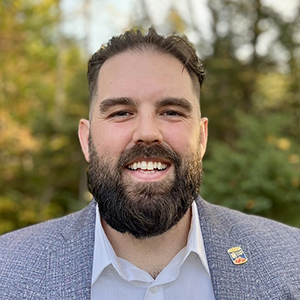
Greg Pearcey, PhD
Greg is an Assistant Professor in the School of Human Kinetics and Recreation at Memorial University of Newfoundland (MUN) and holds a cross-appointment in the Division of BioMedical Sciences, as well as an Adjunct position in Physical Therapy & Human Movement Sciences (Northwestern University). He completed a Bachelor of Kinesiology and MSc in Exercise Physiology at MUN before pursuing a PhD in Neuroscience with Paul Zehr at University of Victoria. During his PhD, he studied how spinal reflexes are modified by sensory stimulation and rhythmic movement. He then trained under CJ Heckman and Zev Rymer during two postdoctoral fellowships at Northwestern University, where he acquired a newfound love for the analysis of human motor unit discharge behaviour in health and disease. He now directs the Neural Interface for Movement Lab and is interested in decoding the neural control of human movement. The goal of his work is to understand and enhance neuroplasticity for the recovery of motor function after neurological impairment. Greg has a profound interest in connecting with and learning from researchers around the world, which is why he has organised and hosted the Motor Unit Group Seminar since 2020.
Statement:
Hi everyone! My name is Greg, and I am an Assistant Professor at Memorial University of Newfoundland in North America’s oldest city, St. John’s. My lab studies the neural control of human movement through the application of high-density electromyography. We decompose these signals into motor unit spike trains to understand alterations in motoneuron firing under various conditions. My love for motor units began during my postdocs with CJ Heckman and Zev Rymer at Northwestern University in Chicago. Prior to that, I did a PhD under the supervision of Paul Zehr at University of Victoria, where I studied sensory- and locomotor-induced modulation of reflex pathways and gained a profound passion for promoting trainees and science communication. Combining my love for motor units with my passion for the promotion of trainees and science communication led me to ISEK, of which I have been a member since 2017. I have served on the Early Career Researcher Committee since 2021 and helped organize and chair ISEK Around the World. I spoke in two symposia at ISEK 2022 in Quebec City, and I will chair and speak in two separate symposia and speak in two workshops at ISEK 2024 in Nagoya. I am continuously optimistic about the future ISEK and its members, the potential for growth around the world, and the role that I can play in facilitating the experience of everyone in the field of human movement science as a member of ISEK Council.
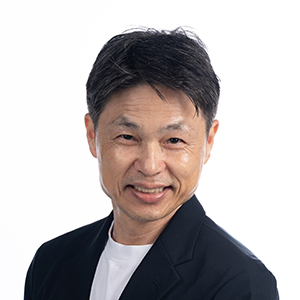
Minoru Shinohara PhD, FACSM
Minoru “Shino” Shinohara serves ISEK Council (2nd term) as Secretary and Member Services Committee Chair. He is Director of Human Neuromuscular Physiology Lab and Associate Professor in Biological Sciences and BME at Georgia Institute of Technology, USA. He studies motor control and adaptation mechanisms using EMG (interference/motor unit), mechanomyography (MMG), ultrasound (elastography/B-mode), neurostimulation (tVNS, TMS, spinal reflex), EEG, and engineering approaches, including robotics. He received his BS and MS in Physical Education and PhD in Multidisciplinary Sciences from University of Tokyo, Japan. He worked there as Assistant Professor, Pennsylvania State University as Research Associate, and University of Colorado at Boulder as Senior Research Associate before joining Georgia Tech in 2006. He has served as Associate Editor of Medicine & Science in Sports & Exercise (2010-2020) and Editorial Board Member of Journal of Electromyography and Kinesiology (2008-), Journal of Applied Physiology (2009-), Medicine & Science in Sports & Exercise (2009-2010, 2020-), Journal of Motor Behavior (2012-), and Journal of Physiological Sciences (2012-2015). He received American Physiological Society Research Career Enhancement Award (2005) and Star Reviewer (2008 & 2022), American Society of Biomechanics Research Travel Award (2009), and American College of Sports Medicine Fellow status (2003) and Visiting Scholar Award (2009).
Statement:
I have been actively involved in ISEK, serving on the editorial board of the Journal of Electromyography and Kinesiology since 2008. Elected to the ISEK Council in 2020, I contributed to the Member Services Committee, gaining valuable insights into Council operations. Re-elected for the second term in 2022, I assumed greater responsibilities as Secretary and Chair of the Member Services Committee. I have led the initiative in organizing the ISEK-JEK Tutorials and fostering partnerships with other societies like the International Motoneuron Society. Additionally, I led the initiative to create the Technical Committee and am currently leading the development of the Clinical Application Committee and the Education Committee. I also supported the inaugural ISEK Around the World event by representing America. If elected as Vice President, I will help accelerate the growing momentum alongside the current and incoming Presidents I have worked with for the past four years. I want to help advance ISEK to be an attractive and rewarding community where people feel related and excited by finding something new and interesting to share or learn. I aim to cultivate an inclusive and dynamic community, integrating new areas and diverse perspectives into scientific research, technical development, clinical applications, and educational endeavors while enhancing existing strengths such as EMG. Feedback and involvement of new and existing members will be instrumental in achieving these objectives. Regardless of my role, I am dedicated to serving on the Council, drawing on my interdisciplinary research background to provide professional and committed leadership within ISEK.
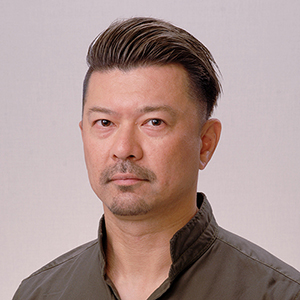
Kohei Watanabe, PhD
Kohei Watanabe is Professor of School of Health and Sport Sciences (Director of Laboratory of neuromuscular biomechanics) at Chukyo University, Toyota, Japan. He received M.S. degree from Nippon Sports Science University in 2007 and the PhD degree from Nagoya University in 2010. From 2010 to 2011, he was working at Laboratory of Applied Physiology, Graduate School of Human and Environmental Studies, Kyoto University as a Postdoctoral researcher of Japan Society for the Promotion of Science. In 2011, he was also working at Laboratory for Engineering of the Neuromuscular System (LISiN) of Politecnico di Torino, Italy as a visiting researcher. In 2012 he was appointed as Associate Professor of School of International Liberal Studies at Chukyo University, Japan. In 2020, he was assigned as Professor Faculty of Liberal Arts and Sciences at Chukyo University, Japan. In 2021, he was assigned as Professor of School of Health and Sport Sciences at Chukyo University, Japan. His research topics are the effects of exercise, nutrition, aging, and development on human neuromuscular system.
Statement:
He works as ISEK council member from 2012 to 2014 and 2016 to present as voted member or congress chair (non-voted member). In this decade, he was only one member from Asian countries and connect ISEK and this region. In ISEK around the world in 2023, he organized the Japan and Australia session. This role must be continued by him. Also, he was assigned as the congress chair of ISEK2020 and 2024 which were held as virtual conferences and face-to-face meetings in Nagoya, Japan. These experiences will be shared with future ISEK members since he was the first congress chair of a virtual conference in ISEK and multiple congresses. He has worked as president of the Japanese Society of Electrophysiology and Kinesiology since 2022. He thinks that one of the important roles of ISEK in the future would be the connection of local societies all over the world. He will contribute to this mission.
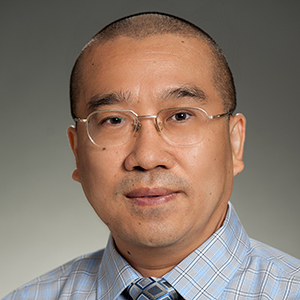
Ping Zhou, PhD
Ping Zhou is a Professor at University of Health and Rehabilitation Sciences (Qingdao, China). By joining this newly founded university, he is devoted to its biomedical and rehabilitation engineering programs. Before current position he held a Professor position in Physical Medicine and Rehabilitation at the University of Texas Health Science Center at Houston (UTHealth). Before joining UTHealth, he spent most time in Rehabilitation Institute of Chicago (now known as Shirley Ryan AbilityLab) and Northwestern University (Chicago, USA), progressively as PhD student, postdoctoral fellow, research assistant professor and research associate professor. He is founding Specialty Chief Editor for the Rehabilitation Engineering section of Frontiers in Rehabilitation Sciences. He currently also serves as Associate Editor for multiple journals, including IEEE Transactions on Biomedical Engineering, IEEE Transactions on Neural Systems and Rehabilitation Engineering, Journal of Neuroengineering and Rehabilitation, Frontiers in Neuroscience, Frontiers in Neurology.
Statement:
Dr. Ping Zhou’s research interests include biomedical signal (in particular, EMG) processing, motor unit analysis, neuromuscular electrophysiology, and myoelectric control. He has authored/co-authored more than 200 peer reviewed journal articles, most of which are related to surface EMG. By seeking the position, Dr. Zhou’s goals are to promote the impact of ISEK in China and increase the participation of Chinese scholars in ISEK. There has been dramatic growth in surface EMG research over recent decades in China, due in part to continual economic development and investment in research. Several months ago Dr Zhou organized a surface EMG symposium in Qingdao, attracting more than 250 people from across academic, medical, and industrial sectors (Zhou P. Surface EMG in China: a report on the 2023 surface EMG symposium. Front. Rehabil. Sci. 5:1353564, 2024). As the growth of surface EMG-related research and applications in China accelerates, ISEK serves an ideal Society for Chinese researchers to perform academic exchange, technical training, and knowledge dissemination.
Council Nominations: Early Career Researcher Council Member — Pre doctoral
There is one position available for the 2024 – 2026 term. The candidate with the highest votes will be voted in for the 2024 – 2026 term.
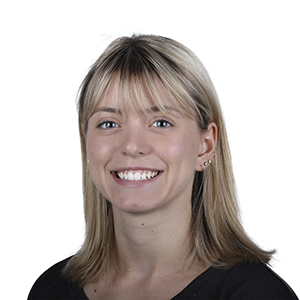
Sophia Jenz
Sophie is a doctoral candidate in the Northwestern University Interdepartmental Neuroscience (NUIN) Program, where she specializes in Movement and Rehabilitation Science under the mentorship of CJ Heckman. Her PhD dissertation focuses on the neural control of movement at the level of the motor unit with special interest in female physiology. Her research aims to uncover the mechanisms behind sex-related differences in motor control and investigates the influence of fluctuating sex hormones on the motor system. Outside of the lab, Sophie is a certified personal trainer and she is passionate about promoting female health and well-being through strength training. Bringing these together, her overarching goal as a scientist is to deepen our understanding of female physiology and translating that knowledge into practical ways for women to improve their health.
Statement:
As a PhD student, I have experienced firsthand the benefits of scientific collaboration. Currently, I co-host an international motor unit journal club and organize the trainee talks for the Motor Unit Group Seminar Series (MUGSS). At ISEK 2024 in Nagoya, I will co-host a workshop titled “By Trainees, for Trainees” which aims to provide a space for students to share common experiences and network at the beginning of the conference. If elected to the ISEK council, my goal will be to create ways to encourage collaboration and inclusivity among early career researchers and support their active involvement in the ISEK community.
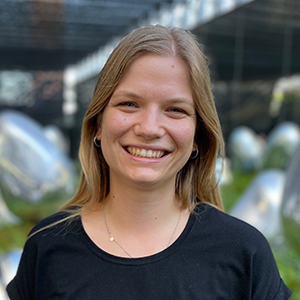
Manuela Zimmer
Manuela Zimmer, is a research assistant and doctoral student at the University of Stuttgart, Germany, under the supervision of Filiz Ateş in the Experimental Biomechanics Group. Her PhD started in May 2021 after graduating from the medical engineering program at the University of Stuttgart (M.Sc. and B.Sc.) and University of Tübingen (B.Sc.), focuses on in vivo estimation of skeletal muscle forces, employing methods like surface electromyography, ultrasound shear wave elastography, magnetic resonance imaging, and finite element modelling. Currently in collaboration with Thor Besier and Geoffrey Handsfield at the Auckland Bioengineering Institute in New Zealand, she is establishing an imaging and modelling framework for studying muscle mechanics.
Manuela has authored seven journal papers (three as a first author) and presented at seven international conferences. She is a member of ISEK, the International Society of Biomechanics, and the Virtual Physiological Human Institute, fluent in German and English, with basic proficiency in French.
Her diverse experiences include internships at Philips Medical Systems and an orthopedic hospital, as well as roles as a teaching assistant, student council member, and treasurer of a medical student association. Passionate about sports, she holds a ski alpine instructor license and is actively involved with the German Red Cross.
Statement:
Manuela Zimmer is passionate about leveraging technology to advance our understanding of the human body. Her education in medical engineering positions her well for significant scientific contributions. Her initial research experience began with her Bachelor’s thesis, where she studied the cortical effects of transcutaneous nerve stimulation. During her Master’s, she focused on automatic image processing, utilizing deep learning algorithms for hip joint measures and landmark detection.
Currently, working as a research assistant and doctoral student at the University of Stuttgart, Manuela is dedicated to constructing an in vivo muscle force estimation model. She actively engages in interdisciplinary and translational research, striving for a better understanding of muscle mechanics and locomotion. Her studies focus on ultrasound shear wave elastography, surface electromyography, and diffusion weighted magnetic resonance imaging to study and model muscle characteristics in health and disease.
Despite being in the early stages of her academic journey, Manuela comprehends the challenges of interdisciplinary work and values the positive impact of scientific societies like ISEK. Aspiring to represent the young generation of researchers on the ISEK council, she aims to connect with peers globally, fostering a thriving research environment. In particular, she wants to contribute the development of new experimental and modeling approaches and technologies for better understanding of skeletal muscle adaptation and its impact on movement. Inspired by ISEK’s impact on the use of electromyography, she views the seat at the ISEK council as an opportunity to expand her network and establish a platform of scientific exchange for these emerging technologies.
Council Nominations: Early Career Researcher Council Member — Post doctoral
There is one position available for the 2024 – 2026 term.
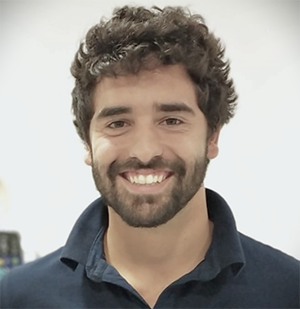
Ricardo Mesquita, PhD
With a background in Sports Science and in Neuromuscular Physiology, Ricardo is currently a postdoctoral researcher at the Department of Electrical Engineering at Chalmers University of Technology (Sweden) and he has been a member of the ISEK Council since February 2023. Additionally, he holds a research position at Neuroscience Research Australia, an adjunct lecturer position at Edith Cowan University (Australia) and contributes to one of the largest online platforms for scientific dissemination in Sports Science (YLM SportScience). Ricardo’s academic path has taken him through Portugal, the UK, Finland, Canada, Australia, and Sweden. He completed his undergraduate degree in Sports Science at Faculdade de Motricidade Humana in Portugal, pursued a master’s degree in Biology of Physical Activity at the University of Jyväskylä in Finland, and obtained his PhD focusing on motoneuron physiology from Edith Cowan University in Australia. Ricardo is interested in understanding how motoneurons control our muscles, and in how we can use this knowledge to improve muscle control in health and disease. Being a topic of interest for the ISEK community, Ricardo has had the opportunity to present his research at ISEK 2018 (Dublin, Ireland), 2020 (online), and 2022 (Québec City, Canada).
Statement:
In recent years, I’ve held leadership roles within academic committees, spearheading various initiatives for ECRs both locally and internationally. I served as the co-chair and representative member of the postgraduate students on our school’s Higher Degree by Research Committee (2019-2021). In 2021, I was honored to join ISEK’s Early Career Researcher Committee as one of its inaugural members. In 2023, I was nominated to fill a parental leave vacancy as an ECR representative on the ISEK council and on the Member Services Committee for the remainder of the term.
In the past years, we have tried to enhance ECR involvement within the society and bring an ECR perspective into its leadership. Some of our initiatives included ECR-oriented newsletters, the pioneering online event “ISEK Around The World” (a 15-h event with sessions spread across different time-zones), and creation of social media content to boost ISEK’s visibility. Additionally, we have been providing support to congress local organising committees to implement ECR-oriented activities at ISEK 2022 and 2024.
I am enthusiastic about ISEK’s future and eager to continue representing ECR members on the ISEK Council. In addition to ensuring continuity of our successful initiatives, I would like to keep advocating inclusiveness and explore new ways to expand ISEK membership, particularly in underrepresented countries and research domains. Furthermore, I would like to contribute to the development of new initiatives that go along with the needs that have been recently voiced by our ISEK ECR members, such as networking opportunities and grant writing workshops.
